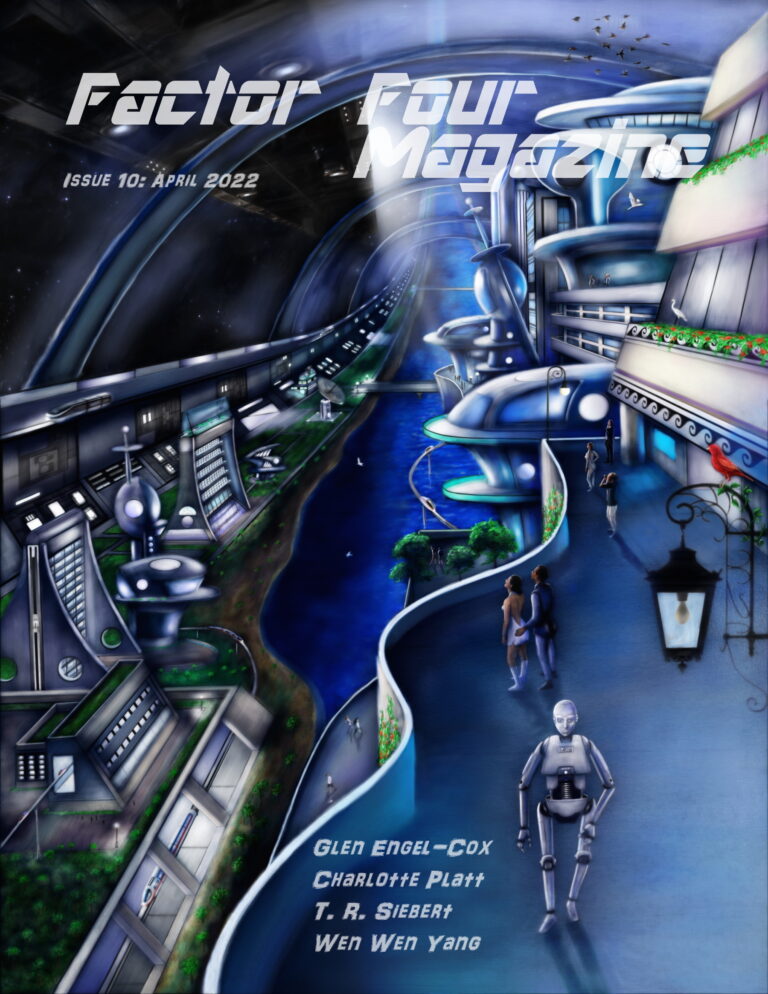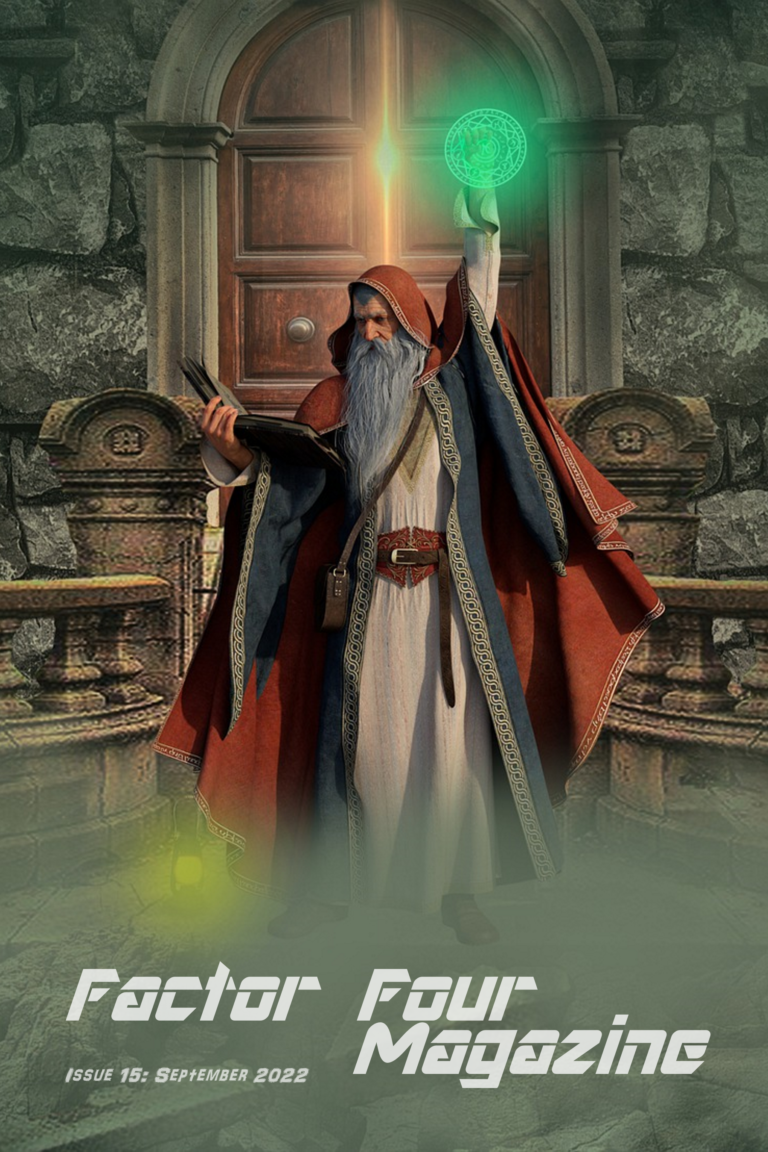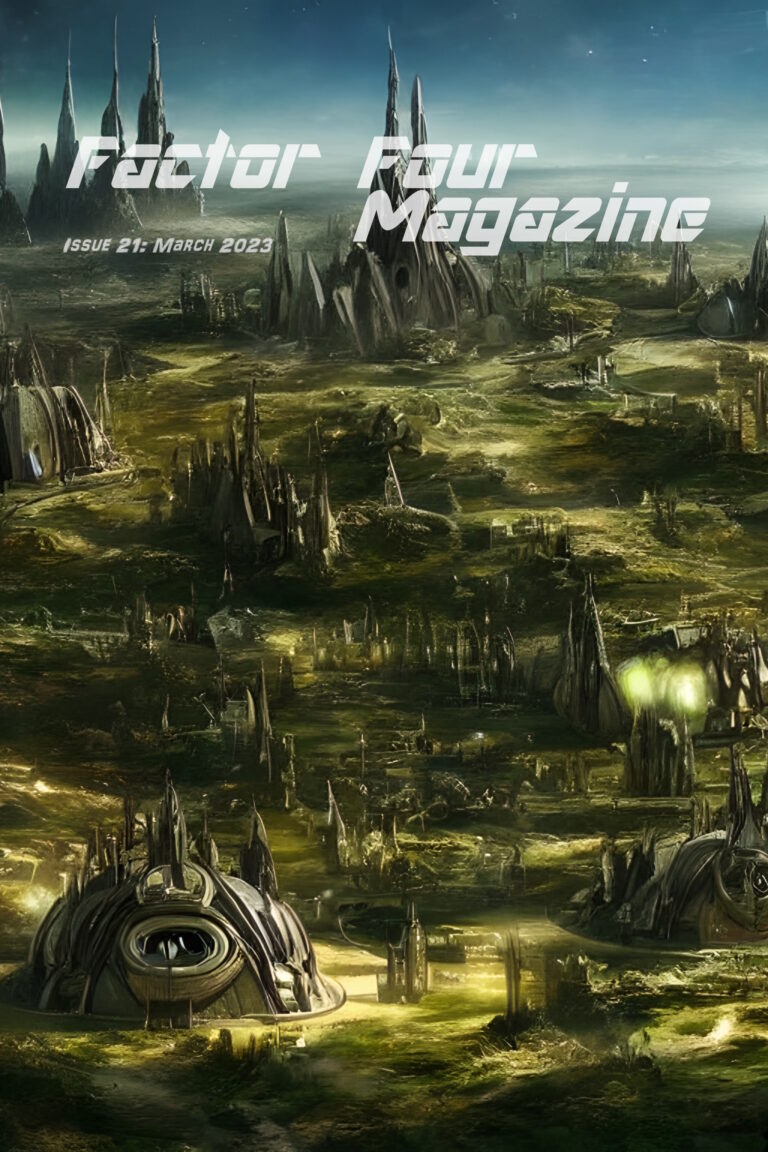The Doll Mender by Hayley Stone

The doll doesn’t make it to my front door. I find her limp against my woodpile out back a few days after the first cold snap. She’s been rained on, her cloth skin a sodden gray, button eyes damp.
“Oh, hello,” she says, with trained brightness. “I do beg your pardon. I seem to be taking up quite a lot of space on your woodpile.”
“Don’t spare it another thought,” I say.
I help her into the house, letting her lean against me. She’s lost a lot of integrity, life-sized body floppy, and something’s been nibbling at her foot. Tufts of white stuffing erupt from a small hole in her heel like hair from an old man’s ears.
As I settle her on the sofa, I apologize for not discovering her sooner.
“My fault,” she says, disembodied voice plush with shame. “I should have tried harder to reach the door.”
Nonsense, I want to tell her. None of this is your fault. But I doubt she’d believe me. “I didn’t think there were many dolls living in the wild,” I say instead. Most augur poppets spend their whole lives with their original commissioners. Sometimes they’re abandoned. Even more rarely, they run. I wonder how this one ended up alone in the woods.
“More every day,” the doll answers. “All our children are growing up.”
I start a fire in the hearth nearby to help her dry, and fetch my supplies. Needles, thread, batting. I’d almost forgotten where I put them. Not much call for menders these days—for dolls or people. Not when the world is more interested in tearing itself apart.
It’s only when I sit that I remember my manners and offer my guest some refreshment.
“I don’t eat,” says the doll. “But I will take some tea. Thank you.”
She lets the tea steep to a muddy darkness, hands too weak to raise the cup. I’m about to help when she droops her head over the steam. “Oh, I just love the smell of tea! Don’t you?”
My tea usually goes cold before I remember to drink it, but I agree for the sake of being hospitable. I’m not just interested in her comfort. I also want her to feel safe.
“Do you have a name?” I ask.
“Dolly,” she says, smiling without embarrassment. “I was first loved by a little girl.”
I ask Dolly to undress to her waist so I can access the central seam in her back. She slips her arms from tattered bell sleeves, and pushes the top of her apron dress down. I have an instinct to look away, but Dolly’s torso is without shape, organless and flat.
“Stop me if anything hurts,” I say. For all I know, Dolly could be an original poppet, made before the law recognized how foul it was for dolls to experience pain and outlawed the design. It’s always good practice to check.
“You live here by yourself?” Dolly asks as I pluck out dusty stuffing. I do one section at a time so she doesn’t lose too much form.
“I do.”
She turns toward me. Her mouth is stitched into a permanent smile with shiny red thread, but I hear her breathless sadness. “How lonely.”
“Yes,” I confess quietly. “It can be.”
“What happened to your family?”
“Plague.” My throat fights the word. I haven’t spoken of this with anyone, for years. No one has been around to ask. I have not been needed in a long time.
“I’m sorry,” says Dolly, and then, “Oh!” as I’m rooting inside her arm. “That tickles!”
“But no pain?”
Dolly shakes her head.
I begin transplanting fresh batting into her. Almost immediately Dolly sits straighter, restored to better condition. “Can I ask how you ended up at my home?”
“I ran away. I wasn’t being loved anymore.”
It has not escaped my notice: the stressed seams at her neck, like she’s been throttled more than once. Dark blemishes across her body, ancient spills that had set into stains no one bothered to bring out. A couple singes that might’ve been accidents, might not have been.
“Where will you go after here?”
She pauses thoughtfully. “Anywhere I want. I’m told it’s a very large world. There must be so many different teas to try.”
“There are. Ginger and bergamot, lemon and sage, passionflower and peppermint… although of course not steeped altogether.”
“I shall have to record my favorites so I remember.”
Dolly is wonderful company, and I find myself stalling, wanting to keep her with me. I repair her seams, mend her dress, and wash her hair over the sink. Dolly’s hair is thick and waxy, fed through her scalp instead of glued so it’s safe to shampoo. I run my fingers through the long blue strands, thinking of my daughter. I have so missed caring for another.
Too soon Dolly is perfect again. Ready to face the world. Ready to be loved again.
Ready to leave.
“Thank you,” Dolly says, embracing me fiercely. “You don’t know what this means to me.”
Our time together has meant a great deal to me too, but I can’t find the words to tell her.
Not a week passes before there’s a knock at the door. I rush to answer, hoping it’s Dolly, but discover another doll instead. My heart turns inside out at the sight of her, missing a button eye and cradling a detached arm to her chest like a child.
Her voice shakes. “Dolly said you could help me,” she says uncertainly.
I grab a coat from the rack nearby and drape it around the doll’s shoulders. I smile kindly at her. “Let me get my things,” I say, and bring her in where it’s warm.





